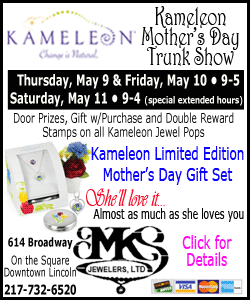|
 The Queen's Speech -- a legislative agenda written by the government but read out by the monarch -- included measures intended to stimulate a national economy that has flat-lined since the global economic crisis hit five years ago. The Queen's Speech -- a legislative agenda written by the government but read out by the monarch -- included measures intended to stimulate a national economy that has flat-lined since the global economic crisis hit five years ago.
The speech promised "an economy where people who work hard are properly rewarded," with laws to "reduce the burden of excessive regulation on businesses" and enshrine consumer rights.
There was no hint of deviation from the government's commitment to cost-cutting austerity measures, but the speech announced infrastructure investment in energy and the water system, and a bill to start building a high-speed rail link from London to England's second city, Birmingham.
The government also threw a few nuggets to taxpayers wearied by rising prices and stagnating salaries. It promised better and cheaper childcare, a simpler state pension system and reforms to the way long-term care is paid for so the elderly don't have to sell their homes to meet care bills.

On immigration, the speech said the government would make Britain a country that "accepts people who will contribute and deters people who do not."
New measures, which could limit new immigrants' access to health care and welfare, are intended to counter impressions that some migrants get a free ride on the welfare state -- a perception that has fueled support for the anti-Europe U.K. Independence Party, a threat to Cameron's Conservatives.
The legislative schedule was also notable for its absences.
There was no mention of contentious plans to allow police and spy agencies to snoop on email traffic, Web browsing and social media sites. The measures were announced last year in the draft Communications Data Bill, but sparked an outcry from civil liberties campaigners. Last month Deputy Prime Minister Nick Clegg said they would not become law.
Instead, the queen announced unspecified new measures to fight crime in cyberspace.
The state opening is a pageant of power, pomp and politics rich in arcane traditions including a golden throne, a crown studded with 3,000 diamonds and an official known as Black Rod.
The queen was driven from Buckingham Palace to Parliament in a horse-drawn carriage, escorted by mounted members of the Household Cavalry in scarlet tunics and gleaming breastplates.
[to top of second column] |
 Dressed in an ivory gown and wearing the diamond-encrusted Imperial State Crown, she delivered the speech from a gilded throne in the House of Lords to an audience of ermine-robed peers and lawmakers in ordinary clothes.
The annual pageant draws heavily on the history of the power struggle between the monarchy and Parliament. Lawmakers were summoned from the House of Commons to listen to the queen by Black Rod, a security official -- but only complied after first slamming the door in his face to symbolize their independence.
Since King Charles I tried to arrest members of the House of Commons in 1642 -- and ended up deposed, tried and beheaded -- the monarch has been barred from entering the Commons.
In another symbol of the traditional hostility between Commons and crown, a lawmaker was held at Buckingham Palace as a "hostage" during the ceremony to ensure the monarch's safe return.
This year, Prince Charles and his wife Camilla, Duchess of Cornwall attended the state opening alongside the queen.
It is being seen as another sign of the heir to the throne's increasingly prominent role as he takes over more duties from the 87-year-old monarch. Buckingham Palace announced Tuesday that Charles would attend a Commonwealth heads of government conference in Sri Lanka in November in place of the queen, who is cutting back on long-distance travel.
[Associated
Press; By JILL LAWLESS]
Jill Lawless can be
reached at
http://twitter.com/JillLawless.
Copyright 2013 The Associated
Press. All rights reserved. This material may not be published,
broadcast, rewritten or redistributed.
 |